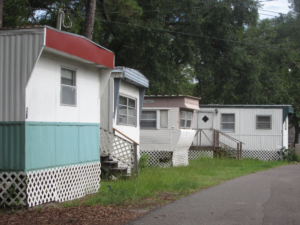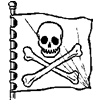Westbury Hotel, San Francisco, 3 AM, October 1974: Dreadfully embarrassed. I first heard this phrase in the summer after my Junior year in High School. I’d signed up for the wheat harvest, which is cross between “On the Road”, being a truck-drivin’ man, and working on a farm.
Wheat is grown in the middle of the United States, so they call it the ‘grain belt’. The grain ripens first in Texas, then Oklahoma, then Nebraska, then the Dakotas, and all the way into Canada. Our caravan followed the ripening wheat, travelling north.
The Moser family, for whom I worked, pulled a house trailer, and the hands, of which I was one, slept in a bunk trailer, a hand-built box on wheels containing bunks. Some hands were combine drivers, who drove the reaping machines around and around in the wheatfield. I was a truck driver, meaning I loaded my truck with grain and drove it to the elevator in town, where they credited the farmer.
One of the drivers, a thin and angular fellow, had an odd sense of humor and a bad case of gas. At one point, after polluting our bunk trailer, in response to jeers and threats, he said, “Oh. Pardon me. I am dreadfully embarrassed, and I am sure that it will never happen again.”
That’s all very well to say. However, I have seen dreadfully embarassed, and it looks quite different. For example …
It was the dead of night at the lejurious Westbum- Oops I mean Westbury Hotel in downtown San Francisco. The hotel was nearly full, mostly Japanese tours, and the last of the Japanese men — a hard-drinking lot, in dark suits — had drifted into the lobby, and up to their rooms on the 30 floors above us.
Henry So, the night auditor, had almost completed balancing the night’s books, and I was on the desk with nothing to do except fiddle with the reservation racks. Suddenly the fire alarm on the wall began a horrendous clanging that made calm thought difficult and speech impossible.
In the switchboard room, the display showed trouble on the sixth floor, so Roselle the telephone operator started calling room after room, asking folks to immediately evacuate to the lobby. Beyond the fire alarm’s clanging came the wailing of sirens, growing closer.
Elevators began to disgorge disheveled people in a hodgepodge of pajamas, business attire, and hairpins. The milling throng grew and grew. A pretty Japanese tour leader stood on a chair, yelling incomprehensibly, and gathering all her dark-suited countrymen around her. Fire marshalls rushed through the lobby and disappeared. Men in yellow slickers began unrolling vast hoses into the lobby.
Through the din, I’m yelling at the marshall to ask if he can kill the alarm. Suddenly it stops. Four to five hundred people, standing in the lobby, are suddenly very quiet, and we could hear one Japanese man sobbing. Everybody turns to see him and we watch him talking tearfully to the tour leader.
The fire marshall startles me, saying that an alarm was triggered on the sixth floor — home of the japanese tour — but there is no fire. His men are yelling out the door. Hoses are being rolled up. Still the Japanese man continues his tearful story. He stops. All is still.
I stand on a chair behind the desk and speak very loudly, telling everybody that we are very, very sorry for the disturbance, but I am relieved and happy to announce that there is no danger, repeat, there is no danger, and it is safe to return to your rooms now. We thank you for your cooperation, we apologise for the disturbance, everything has been verified as safe, and you can return to your rooms.
The tour leader is watching me and I motion her over, to ask if she knows what triggered the fire alarm on the sixth floor. If you have travelled in hotels, you will have seen these alarms in the hallways. It’s always a red panel with a lever to pull, clearly labeled “Fire Alarm.”
Well, yes, the tour leader said, she did know something about that. In the background, silent, the Japanese tourists are waiting for elevators, except for the one man still standing by himself, staring at the floor.
From the tour leader, I learned that Japanese hotels often have cigarette lighters in the hallways. These handy cigarette lighters are bright red, and clearly labelled. Labelled, of course, in Japanese, not in English which is of course a foreign language to many Japanese gentlemen.
The Japanese gentleman who had mistaken the fire alarm for a cigarette lighter stood quietly and didn’t move.
Now, that is dreadfully embarassed.
 Although the plan bombed later, I wanted to own my own home, and having very little money, decided to start with a houseboat or a house-trailer.
Although the plan bombed later, I wanted to own my own home, and having very little money, decided to start with a houseboat or a house-trailer. Henrietta, Texas, Summer 1922:
Henrietta, Texas, Summer 1922: 
